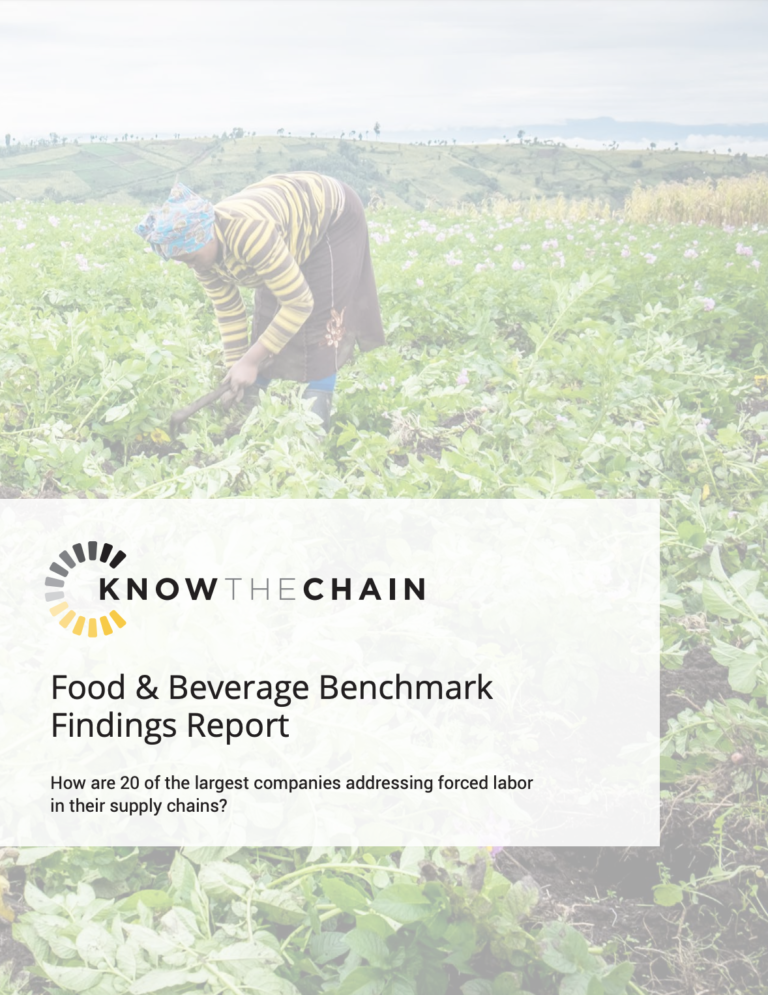According to the International Labour Organization (ILO), an estimated 21 million people are victims of forced labor around the world. As defined by the ILO, forced labor refers to “situations in which persons are coerced to work through the use of violence or intimidation, or by more subtle means such as accumulated debt, retention of identity papers or threats of denunciation to immigration authorities.” The agricultural sector alone (including forestry and fishing) generates an estimated US$9 billion in illegal profits from forced labor each year.
The KnowTheChain benchmark evaluates corporate efforts to assess forced labor risks in their supply chains. The report found that food and beverage companies demonstrate a growing awareness and commitment to addressing forced labor, but need to particularly adapt their traceability, purchasing, and recruitment policies and practices to better understand
and address the specific risks inherent to their sector.

